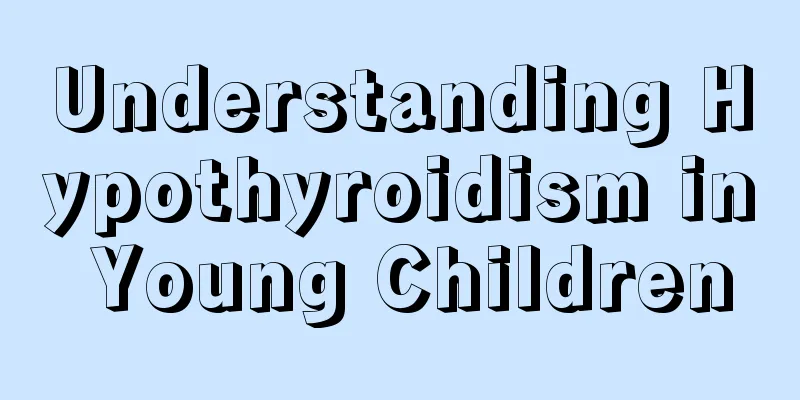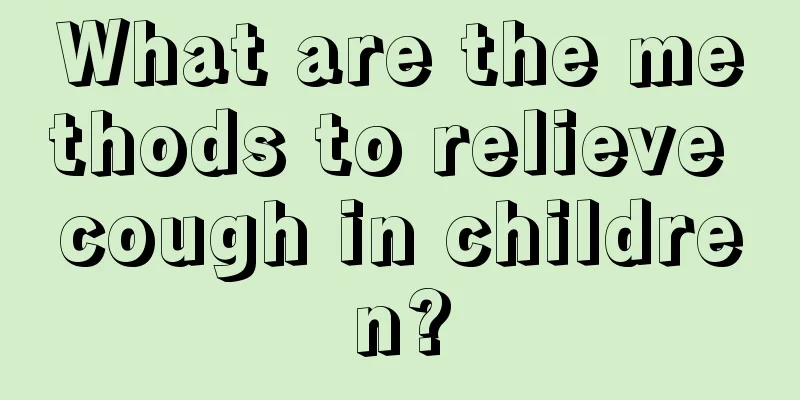The child's chest pain will go away after a while.

|
The chest is where our heart is located. If pain occurs in this area, it may have very serious consequences. If a child's chest pain only lasts for a while and then goes away, and if it is continuous and not occasional, you should be careful that it is caused by autonomic nervous system disorder. This can be comprehensively judged based on the other symptoms of the child's body. At the same time, you should go to the hospital for examination as soon as possible to clarify the situation. Clinical manifestations of autonomic dysfunction The autonomic nervous system controls the activity and secretion of internal organs (digestive tract, cardiovascular system, respiratory tract and bladder, etc.) and endocrine glands and sweat glands, and is involved in regulating the metabolism of glucose, fat, water and electrolytes, as well as body temperature, sleep and blood pressure. When the sympathetic nervous system function is reduced or the parasympathetic nervous system function is hyperactive, the symptoms include pupil constriction, increased saliva secretion, slower heart rate, vasodilation, lower blood pressure, increased gastrointestinal motility and digestive gland secretion, increased liver glycogen storage to increase absorption function, and bladder and rectal contraction to promote waste excretion. When the parasympathetic nervous function is reduced or the sympathetic nervous function is hyperactive, the symptoms include dilated pupils, widened palpebral fissures, protruding eyeballs, increased heart rate, contraction of visceral and skin blood vessels, increased blood pressure, faster breathing, bronchiectasis, inhibition of gastrointestinal motility and secretion, increased blood sugar and increased peripheral blood volume. Therefore, when the autonomic nervous system is disordered, its clinical manifestations may involve multiple systems throughout the body, such as the cardiovascular system, respiratory system, digestive system, endocrine system, metabolic system, urogenital system, etc., and patients experience numerous symptoms. Such as cardiac neurosis such as chest tightness, shortness of breath, palpitations, and a sense of impending death; gastrointestinal neurosis such as stomach pain, bloating, vomiting, and diarrhea; some patients experience headaches and dizziness, blurred vision, insomnia, forgetfulness, numbness and itching of the skin, tightness, stiffness and discomfort all over the body, numbness of the limbs, hot palms and feet, hot skin all over the body, but normal body temperature, hot flashes and sweats all over the body, or wandering pain and abnormal sensations all over the body, irregular menstruation and dysmenorrhea in women, spermatorrhea and impotence in men, etc. It is often accompanied by emotional changes such as anxiety, tension, and depression, and treatment for organic diseases such as coronary heart disease and gastritis is often ineffective. Clinical manifestations of congenital heart disease There are many types of congenital heart disease, and their clinical manifestations mainly depend on the size and complexity of the malformation. Complex and severe malformations can cause serious symptoms shortly after birth and even be life-threatening. It should be noted that some simple malformations such as ventricular septal defect and patent ductus arteriosus may not have obvious symptoms in the early stages, but the disease may still potentially develop and worsen, and requires timely diagnosis and treatment to avoid losing the opportunity for surgery. The main symptoms are: 1. Frequent colds, repeated respiratory tract infections, and susceptibility to pneumonia. 2. Poor growth and development, weight loss, and excessive sweating. 3. The baby has weak sucking ability and difficulty in feeding, or refuses to eat, chokes and coughs, and usually has rapid breathing. 4. Children complain of fatigue and poor physical strength. 5. Bluish lips and nails, or cyanosis after crying or activity, and clubbing of fingers and toes. 6. Like squatting, fainting, and coughing up blood. 7. Auscultation revealed a heart murmur. |
Recommend
Treatment time and method of neonatal jaundice
Nowadays, the incidence rate of newborns is getti...
How to correct children's hunchback?
The phenomenon of children suffering from hunchba...
Why is the inside of the newborn's lips white?
The arrival of a baby will bring great surprise t...
Six common misunderstandings about medication for children
1. Misuse of antibiotics Epidemiological surveys ...
6 home-cooked dishes to help children improve their brain power
All parents want their babies to be smart, but th...
What is the cause of ventricular septal defect in infants?
Nowadays, many babies suffer from some diseases w...
How to prevent neonatal herpes
Herpes is a common disease in newborns. This is b...
3-year-old baby coughs with phlegm
I believe that many people often encounter the pr...
What is the cause of neonatal hemangioma?
Hemangioma is a common benign tumor of the skin b...
What are the clinical manifestations and treatments of colorectal polyps in children?
Polyps have always been a rather troublesome dise...
What causes fatigue in children?
The problem of physical fatigue is most likely to...
How to take care of children with fever and sweating
In daily life, many babies have poor immunity. So...
Causes of brain dysplasia in children
The growth and development of children is an issu...
Why does a seven-month-old baby cry at night?
The reason why a baby is called a baby is that he...
What is the cause of the three-year-old baby's stomach pain?
Babies have various problems in life, and some of...









